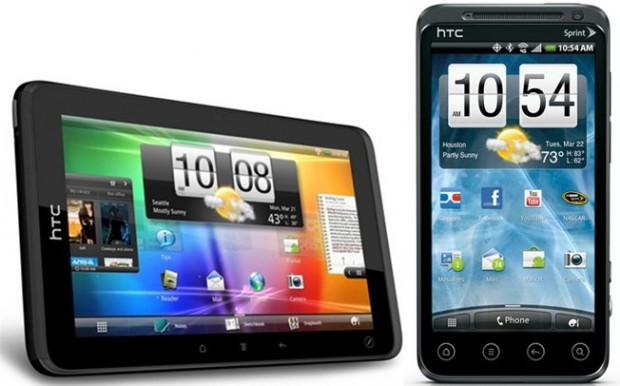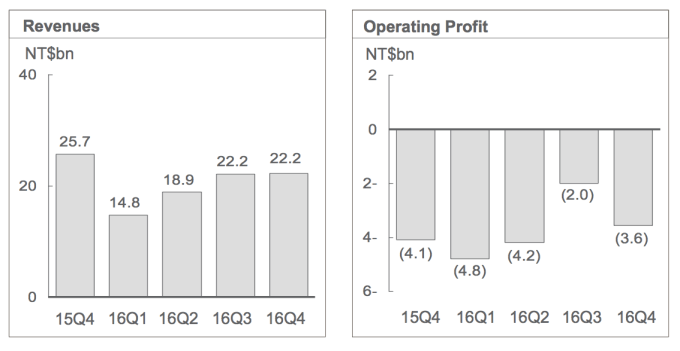[ad_1]

HTC’s latest financials make for another fairly dismal read for the mobile device and VR headset maker, though — crumbs of comfort — it’s making a slightly smaller year-over-year loss. Its operating loss for Q4 2016 was NT$3.6 billion ($116.8M) vs a loss of NT$4.1 billion ($133.1M) in Q4 2015.
Revenue for Q4 2016 was also down at NT$22.2 billion ($720.7M), which is a year-over-year drop of around 13 per cent. Not great news, clearly, but less of a YOY revenue slide than in other recent quarters.
However gross margin declined year over year too, dropping from 13.9 per cent in Q4 2015 to 10.5 per cent in Q4 2016. While HTC’s year over year operating margin was almost the same, at -16.0 per cent for the quarter.
In its report for Q4, HTC claims “robust sales performance” and notes sequential revenue “improving sequentially over 2016”, though revenue was actually flat between Q3 and Q4 — at a point in the sales cycle when you might be expecting a holiday boost to earnings.
HTC also flags what it describes as “aggressively managed” operating expenditure delivering a 34 per cent cost reduction for the business over the course of the year.
But efficiency savings can’t in themselves beget business turnarounds — that requires a string of product wins. And virtual reality is a risky bet for HTC to be making for that, given the lack of proven consumer demand for such a nascent tech.
In recent years loss-making quarters have become the norm for the Taiwanese company, which posted its first ever loss making quarter in Q3 2013. Since then, the raft of management changes, portfolio tweaks and a partnership with games publisher Valve focused on virtual reality have yet to translate into any sustained upward momentum for HTC’s business.
On the product front — beyond its ongoing efforts to tout its Vive VR play — Q4 saw HTC put out several mid tier handsets badged with existing/long-in-the-tooth brand names, such as Desire and Evo.
Notably it’s since launched what it dubs a “new direction” for its phones business, announcing last month a new mobile brand, HTC U, for a range of handsets pre-loaded with a new AI assistant. Not having a much needed smartphone refresh ready to go in Q4 clearly didn’t help its sales performance in the quarter.
HTC was also the design and manufacturing partner for Alphabet’s new Google-branded Pixel handsets, which launched during the quarter. But there are few signs that relationship has translated into substantial sales revenue for HTC.
Its Q4 report provides little detail on any future plans, merely pointing to its continued investment of effort to try to establish a sustained market for VR.
“HTC continues to build the virtual reality ecosystem around HTC VIVE, with several events underlining the growing reach of the Vive platform, including opening the first VIVE-based arcade in Taipei, first demo days for VIVE X accelerator program in Beijing, Taipei, and San Francisco, and the launch of VIVE studios,” it notes.
Source link
 Tech News code
Tech News code



